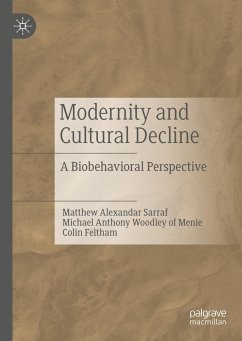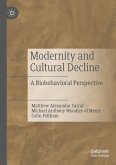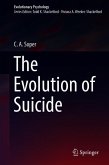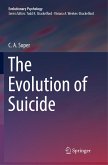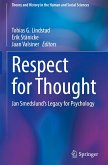This book argues that despite the many real advantages that industrial modernity has yielded-including large gains in wealth, longevity, and (possibly) happiness-it has occurred together with the appearance of a variety of serious problems. Chief among these are probable losses in subjective existential purpose and increases in psychopathology. A highly original theory of the ultimate basis of these trends is advanced, which unites prior work in psychometrics and evolutionary science. This theory builds on the social epistasis amplification model to argue that genetic and epigenetic changes in modernizing and modernized populations, stemming from shifts in selective pressures related to industrialization, have lowered human fitness and wellness.
Bitte wählen Sie Ihr Anliegen aus.
Rechnungen
Retourenschein anfordern
Bestellstatus
Storno

